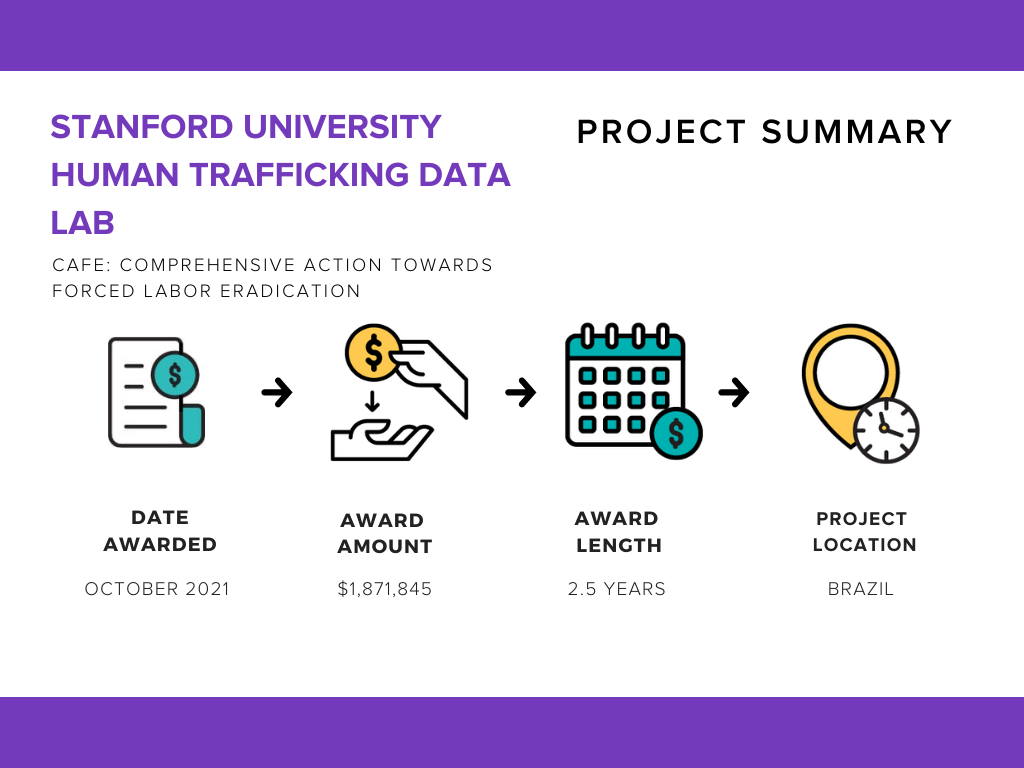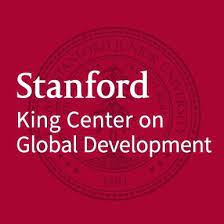February 7, 2024
Supply Chain Management
Comprehensive Action Towards Forced Labor Eradication (CAFE)
The Stanford Human Trafficking Data Lab joins “Comprehensive Action towards Forced Labor Eradication (CAFE),” the Fund’s multifaceted effort to eliminate forced labor in the Brazilian coffee industry, to increase the number of successful anti-trafficking actions, and study overall project effectiveness. The Lab will work with prosecutors and other anti-trafficking actors in Brazil to develop an …
Read this post
